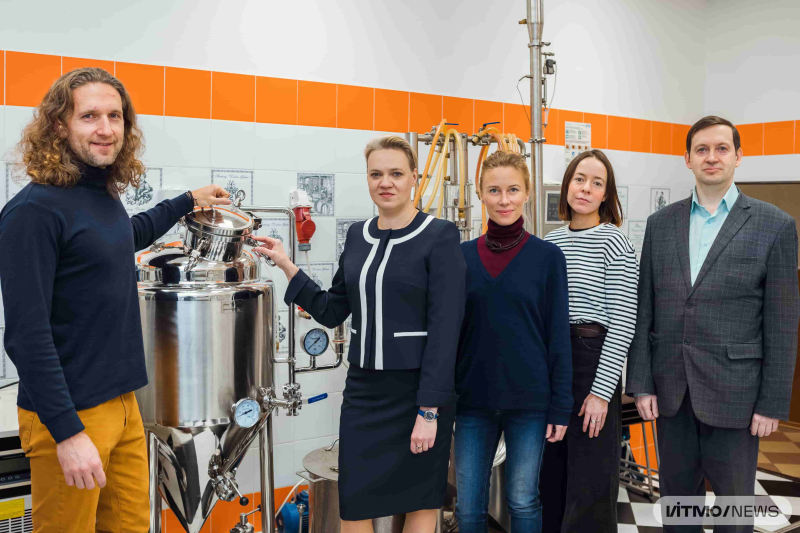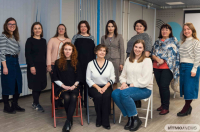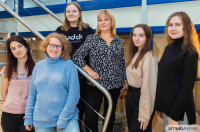- Natalia Yeremeeva, associate professor, Faculty of Biotechnologies
- Petr Balanov, associate professor, Faculty of Biotechnologies
- Natalia Yakovchenko, associate professor, Faculty of Biotechnologies
- Irina Smotraeva, associate professor, Faculty of Biotechnologies
- Denis Baranenko, associate professor, Faculty of Biotechnologies
Natalia Yeremeeva, associate professor, Faculty of Biotechnologies
Natalia teaches courses on bread production, food chemistry, research methods in food biotechnology, and the biochemistry of taste, color, and aroma of food. She also does research in smart packaging and biologically active plant material.
Natalia Yeremeeva. Credit: Dmitry Grigoryev / ITMO.NEWS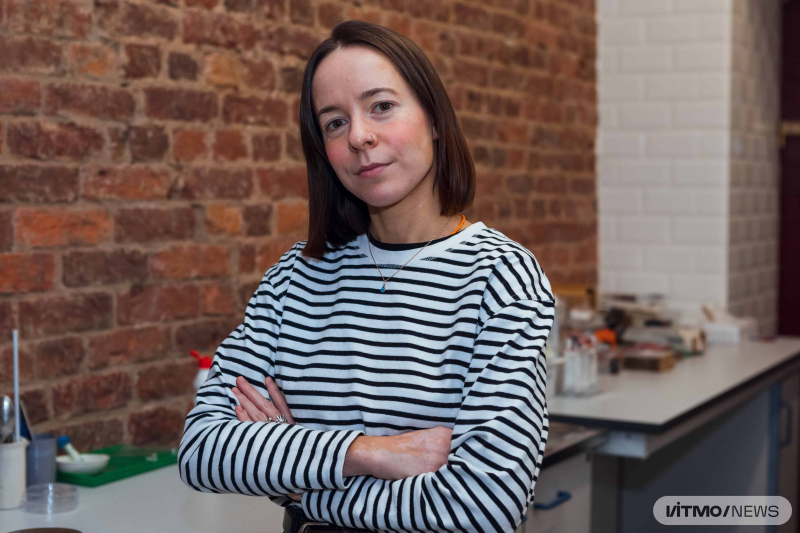
What’s a nerdy app on your phone you would recommend to others?
Google Calendar. It helps me remember that there are only 24 hours in a day and I need to carefully plan out my schedule if I want to have time to do everything (or at least the majority of what I want to do).
What is your favorite spot in St. Petersburg?
I always feel good near water, so I love to spend time by the Gulf of Finland.
Which book should everyone read?
It’s always difficult to answer a question like this because there are so many books and it’s hard to choose just one and forget about the rest. The books I’ve read or re-read most recently that I can recommend are The French Lieutenant's Woman by John Fowles, Burial Rites by Hannah Kent, and the novels of Fredrik Backman. I’d also like to add: just have fun with books and read what you like.
What food can you not live without?
It is impossible to live without a wide variety of foods that include all the important components. That's why I always tell my students that the key to success is to include as many different types of foods in the diet as possible. But when it comes to my favorite foods, I can't imagine life without cheeses and fresh fruits and vegetables.
What innovations in food technology have you been involved in?
At the moment, I’m involved in the development of a biocomposite active intelligent coating that can prolong the shelf life of perishable foods (thanks to antibacterial nanomaterials) and identify the processes of product spoilage (thanks to biosensor molecules).
Petr Balanov, associate professor, Faculty of Biotechnologies
Petr teaches students how to make food production more efficient, use biotech equipment in factories, make wine, and much more. He has also done extensive research in biological polymers, brewing, bread production, using fruit and grain for kvass, and using grain to make marmalade.
Petr Balanov. Credit: Dmitry Grigoryev / ITMO.NEWS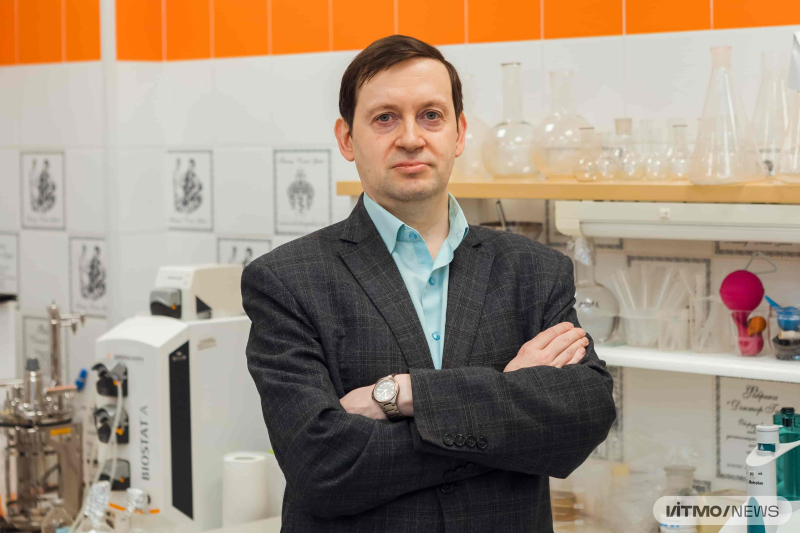
What is your favorite spot in St. Petersburg?
The Field of Mars.
Which book should everyone read?
A Moveable Feast by Ernest Hemingway.
Best movie of all time?
The Matrix trilogy.
If you could be an expert in any other field, what would you choose?
History.
What innovations in food technology have you been involved in?
Food biopolymer technology.
Natalia Yakovchenko, associate professor, Faculty of Biotechnologies
Natalia teaches a course in English called the Ergogenics of Enteral Nutrition. She does research in everything to do with food biotech, especially what interests her and her students.
Natalia Yakovchenko. Credit: Dmitry Grigoryev / ITMO.NEWS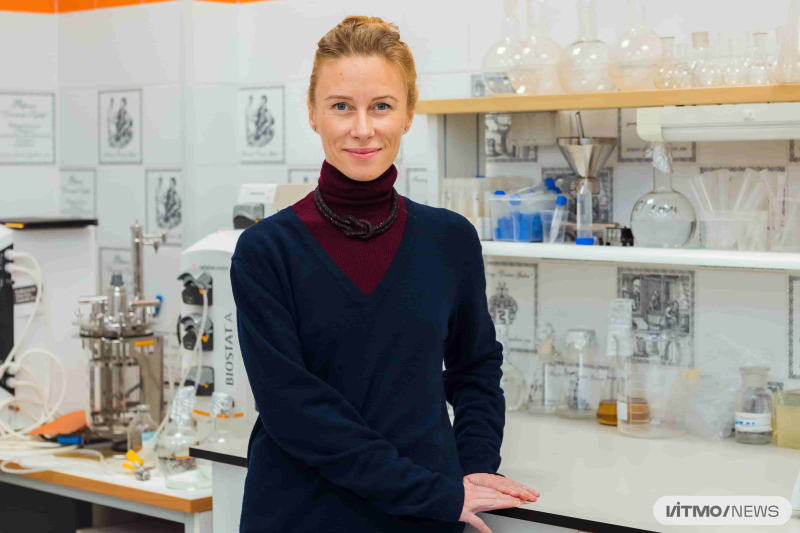
What is your favorite spot in St. Petersburg?
Sosnovaya Polyana Park, Kanonersky Island, and the Charlie Foxtrot pub in Peterhof.
Which books should everyone read?
Alice in Wonderland and Fahrenheit 451.
Best movie of all time?
The Intouchables.
What food can you not live without?
Peanut butter.
What is the future of food?
If we don't stop the global erosion and desertification of soil, I think food will have to be created in a laboratory. River pollution, at least, can be fixed quickly enough, but soil extinction is really a problem. By restoring the soil, it is even possible to reverse climate change. In 45-50 years, a food crisis may begin, which will create chaos. So, I suppose, if nothing changes, we will grow food in a lab.
What is your dream travel destination and why?
The Kingdom of Tonga is the only place where you can really get to know humpback whales.
Irina Smotraeva, associate professor, Faculty of Biotechnologies
Irina teaches beer brewing technology and optimizing resources in food production; she also takes part in research on the development of functional and enriched foods from plant material, resource conservation, biopolymers in the food industry, and the isolation and study of the properties of resveratrol.
Irina Smotraeva. Credit: Dmitry Grigoryev / ITMO.NEWS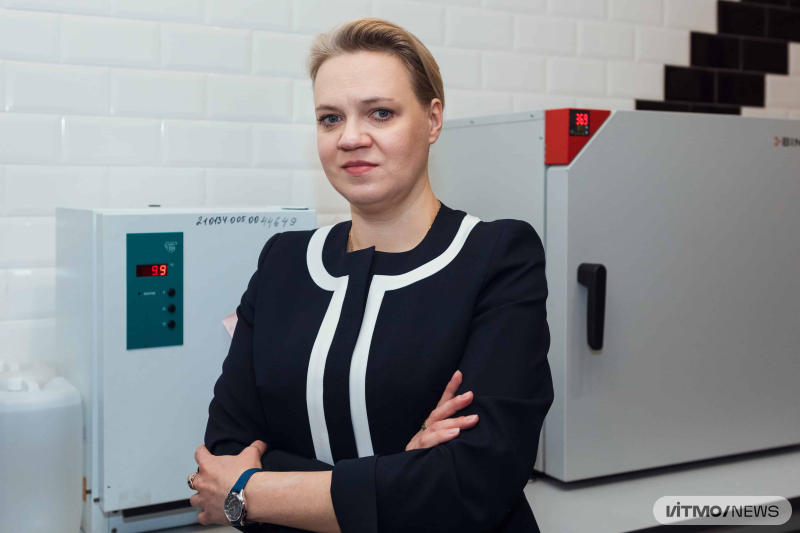
What is your favorite spot in St. Petersburg?
The Summer Garden.
Which book should everyone read?
The Seekers by Daniil Granin is one of the best books about scientists and scientific creativity.
Best movie of all time?
I like Stalker (1979) by Andrey Tarkovsky. Even though the film is quite peculiar, it’s worth watching at least once.
What innovations in food technology have you been involved in?
I’ve been involved in research on the study and application of various polyphenolic compounds in food technologies.
What is your dream travel destination and why?
Chile. I love astronomy and one of the best astronomical observatories, ESO, is located in the Atacama Desert in Chile.
If you could be an expert in any other field, what would you choose?
I’d like to be an expert in microbiology.
Denis Baranenko, associate professor, Faculty of Biotechnologies
Denis teaches students about the fundamentals of food biotech research and is involved in innovative research areas such as the development of onco- and neuroprotective functional food ingredients and products, and the theory and practice of sustainable production and storage of raw food materials.
Denis Baranenko. Credit: Dmitry Grigoryev / ITMO.NEWS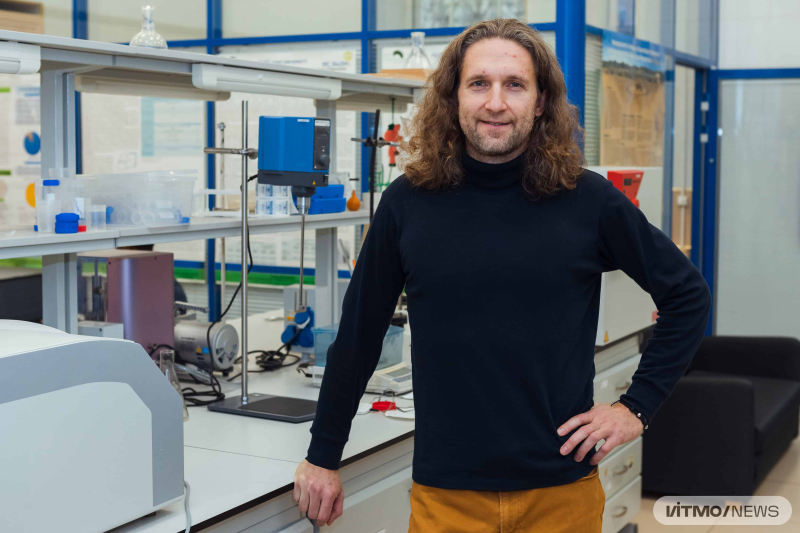
What is the future of food?
Food will prevent disease and ensure active longevity for people.
Which book should everyone read?
Besides the obvious well-known books, I would name this one: Remembrance of Earth's Past trilogy by Liu Cixin.
What is your dream travel destination and why?
Any place where you can combine leisure and active outdoor sports – the Alps, Sochi, the Far East, and Japan for off-piste skiing; the coast of Spain, Italy, or any ocean coast where there is a community of people playing volleyball.
Favorite scientific theory or formula?
The theory of functional nutrition in terms of disease prevention. The modern theory of aging of the human body in terms of life expectancy of 200, 300, and even 600 years. The theory of relativity in terms of the possibility of the existence of a multiverse.
If you could be an expert in any other field, what would you choose?
I would be interested in going deeper into theoretical physics – a very attractive field, but quite far from my current activities.
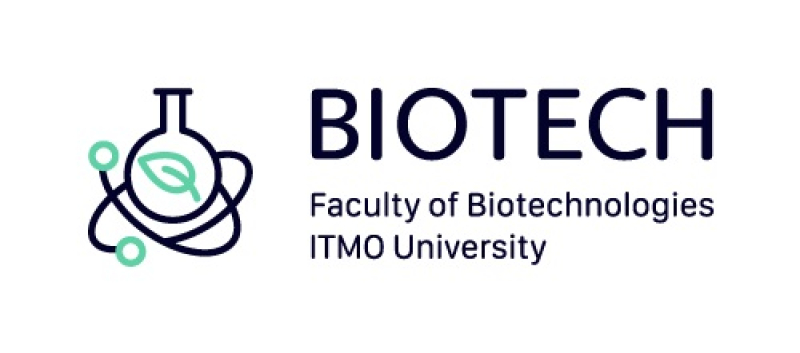
You can meet more of ITMO’s staff in our Get to Know series – including our International Office staff, Student Services Office team, robotics specialists and soft skills teachers.
